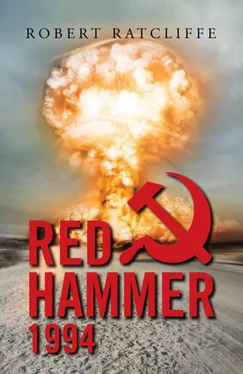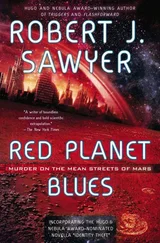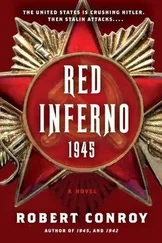Transferred to DC, Thomas had begun what was for him a series of dreary, unpleasant staff assignments, some air force, some Joint. He continued to excel based on hard work and a stellar reputation for getting the dirty jobs done, but he fought the system at every turn and made his life miserable. His running mates had won the right to command air wings, while he languished behind a desk, beset by mind-numbing drudgery. It was tough to stomach. He wasn’t sure what kept him going through those rocky years, although most certainly his wife played the central role. His beautiful, strong, caring wife, who gently encouraged and cajoled, was always sensitive to the hurt left by the cold, official termination from flight status and the scars that still haunted his body. When he felt too sorry for himself, she would give it to him with both barrels.
Making brigadier general had been a watershed. His peers called it a miracle. That prized milestone signaled a continued career in uniform and wiped away any residual self-pity and doubt. He was a military man to the core, and he knew it.
His current duty assignment had been serendipitous. A close friend, now in the government, had introduced him to the current secretary of defense years earlier when the friend and Secretary Alexander were both still in private industry. Thomas was on his way to Colorado Springs for a tour as a watch commander in the Missile Warning Center at Cheyenne Mountain. He fell into an unplanned lunch with the two in Alexandria. They had enjoyed a lively discussion about the course of events in Russia, with Alexander optimistic and Thomas pessimistic. Alexander was noticeably impressed with Thomas’s lack of rigid dogmatism, which crippled so many bureaucrats, military and civilian alike. Later, as a two star on the Air Staff, he was unexpectedly tapped out of the blue as Alexander’s senior military advisor. The secretary hadn’t forgotten the tough-looking general with the scarred face who spoke his mind.
With the new job came a third star. He rose in seniority over forty or fifty general officers in the air force, not the best way to make friends among the senior-officer corp. Friends told him it was a guaranteed stepping stone to four stars and a major air force or unified command. The old luck had returned in spades.
Thomas found the job exhilarating. He felt renewed after years in the bureaucratic trenches, fighting narrowly focused air force budget battles. He was a big-picture man. The world he and Secretary Alexander now faced was startlingly different from the unparalleled drama, breathtaking euphoria, and plain giddiness that gripped the planet early in the decade. Ice-cold reality had hammered home with a vengeance. The epochal upheavals in the world’s supposedly rigid power structure left everyone breathless and cultivated a breeding ground for international mischief.
In retrospect, that wonderful period in American history had been an aberration. It started with the brilliant Desert Storm victory romp through Kuwait and Iraq. The Soviet Union had been relegated to a bit player, a helpless onlooker, struggling to stay in one piece. The United States had emerged as the undisputed master of the universe. After years of procrastination, the START I treaty was successfully negotiated and later amended by START II for even deeper reductions. The treaties promised massive cuts in the superpower nuclear arsenals, the first ever. Conventional forces were dissolving on both sides of the quickly forgotten Iron Curtain. Fledgling democratically elected governments in Eastern Europe struggled for life, but the atmosphere was electric. Anything seemed possible. Even the bankrupt and beaten Soviets—now Russians—appeared on the tortuous road to real economic reform and the beginnings of some sort of democracy. The once frightening prospect for a major East/West confrontation was proscribed from acceptable Washington cocktail party chitchat, and the threat of a nuclear showdown ranked up there with the probability of a comet striking the earth. Even the antinuclear movement gave up the ghost, convinced that mankind was on the golden road to reason and universal nuclear disarmament. The Cold War was clearly over; the ranting of a few surviving anticommunist curmudgeons in the Capitol was no matter. Their days were numbered.
Then the clumsy Soviet coup attempt by Stalinist dreamers momentarily turned the world on its head. At first it seemed as if the clock had been instantly rolled back ten years. Faceless Soviet hard-liners made ridiculous pronouncements that presaged an instant return to the Cold War. Battered Marxist/Leninist holdout regimes around the world cheered, but just as quickly the hapless conspirators were behind bars. The party was disgraced, and the military ran for cover, wearing their apparent indifference to the plotters as a sign of fidelity. The abortive coup unleashed decades of pent-up resentment and hatred, accelerating the Soviet state dismemberment to breakneck speed.
The triumphant reformers turned to dismantling the Kremlin-centered power structure overnight. The stated goal was a loose confederation of sovereign states with all the trappings, but the result was a ridiculous hodgepodge of squabbling ethic groups that could never get their collective act together. The experiment was doomed from the start, despite the forced shows of mutual support by all the key players and bold pronouncements giving birth to the new Commonwealth.
Over time, the miraculous transformation had collapsed, despite the heroic efforts of the popularly elected Russian president. The sick, socialist economy, originally in a tailspin, crashed and burned and never recovered. That’s when Nikolai Laptev came on the scene. The disgraced reformers had been discredited by empty shelves and a bone-weary population that craved stability at any price. With Laptev, they got it.
Like following a bad script, the State Department launched repeated fresh diplomatic initiatives to calm the turbulent seas. The military fell back on the tried and true—aggressively pushing exotic weapons systems and exploiting the United States’ technological edge to the hilt. In reality, no one had the foggiest notion how to approach this mysterious, ultranationalist beast led by Nikolai Laptev.
Laptev rode a wave of recrimination, hate, and nationalist fervor. His Liberal Democratic Party controlled the State Duma, and Laptev controlled the coveted presidency, much to the horror of the West. At first, they had tried to ignore the man, as they had when he blustered and raved as leader of the opposition in the Duma, passing off his more egregious and outrageous ranting as political food for local consumption. But eventually the clearer heads realized they would have to deal with the man. Doing so had proven nearly impossible. The vitriolic native of Saint Petersburg held sway over a disillusioned and desperate Russian people. The irony was not lost on Thomas—a democratically elected neo-fascist armed with thousands of nuclear weapons. Time would tell what Nikolai Laptev had in mind. Until then, the West, led by the United States, stumbled, loath to fully engage the despicable Russian president, but terrified of the alternative. The constant, gut-wrenching tension didn’t make for sound foreign policy.
Thomas rubbed the back of his neck. He thought again of Project Shooting Star. When it came to operational security, he was a born cynic. He’d seen more than one plan screwed up by overconfidence and both hardware and lives lost. Not to mention careers. Lingering doubts played on Thomas’s mind. He prayed they had played this one right.

CHAPTER 5
Mission Control was at full throttle when Thomas arrived a few minutes after nine. If Morgan and his boys pulled this off, it would rank as one of the most remarkable technological achievements of the century.
Читать дальше











